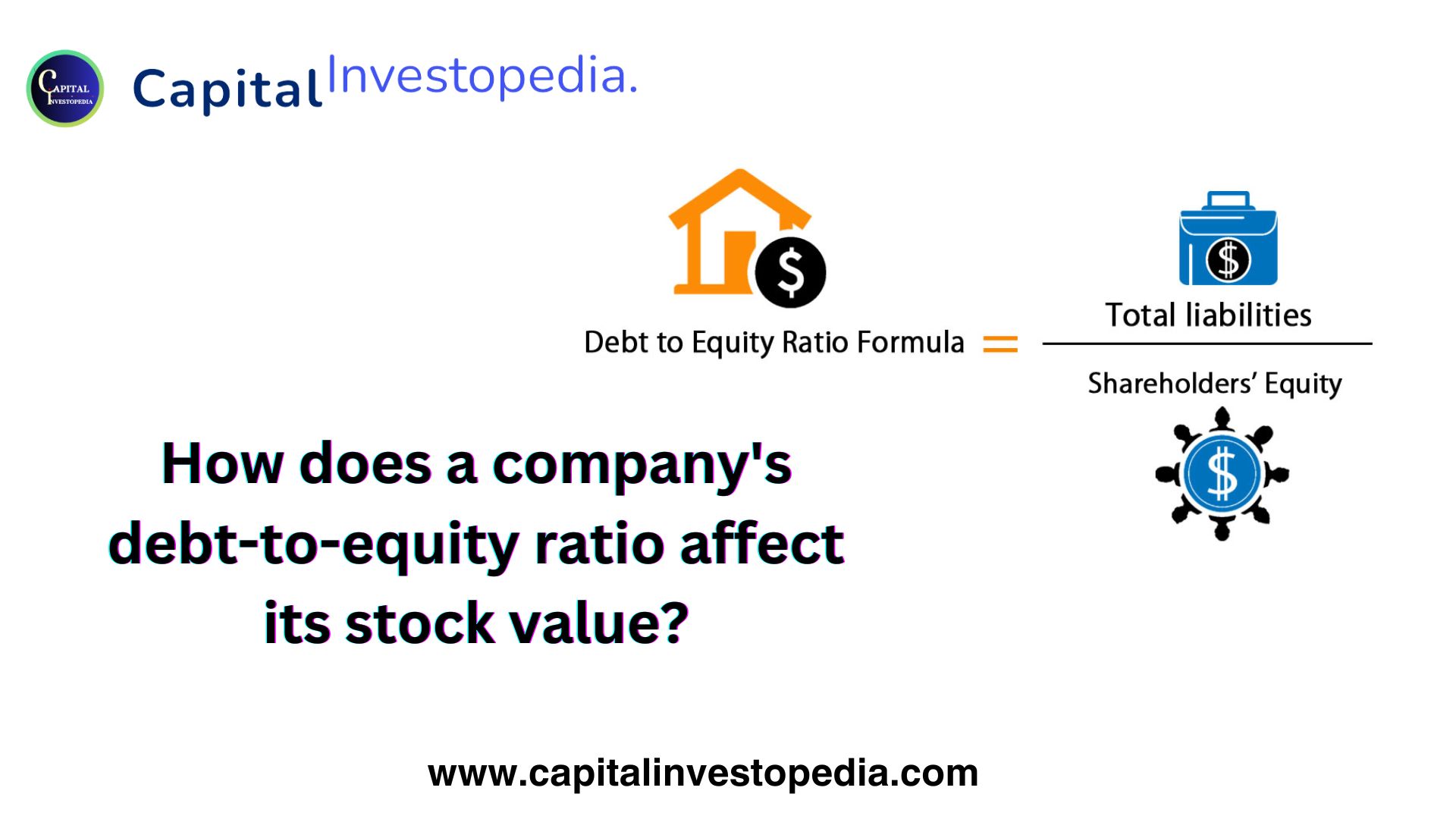A company’s debt-to-equity (D/E) ratio is a measure of its financial leverage, comparing its total debt to its shareholders’ equity. This ratio indicates the proportion of financing that comes from debt versus equity. The impact of the debt-to-equity ratio on a company’s stock value can vary depending on several factors –
1. Risk Perception: Generally, a higher debt-to-equity ratio indicates higher financial risk because the company has more debt obligations to fulfill. Investors may perceive this higher risk negatively, which can lead to a decrease in the company’s stock value.
2. Interest Payments: High debt levels mean higher interest payments, which can eat into the company’s profits. If the company struggles to meet its interest payments, it may lead to financial distress, causing a decline in stock value.
3. Growth Potential: While high debt can increase financial risk, it can also signify that the company is using leverage to finance growth opportunities. If investors believe that the company’s investments will generate sufficient returns to cover its debt obligations, they may view a higher debt-to-equity ratio more positively, potentially boosting the stock value.
4. Cost of Capital: Debt is typically cheaper than equity because interest payments are tax-deductible. Thus, a higher proportion of debt in the capital structure can lead to lower overall financing costs, which may positively impact stock value.
5. Market Conditions: During periods of economic uncertainty or rising interest rates, investors may be more cautious about companies with high debt levels, leading to a decrease in stock value. Conversely, in favorable economic conditions, investors may be more tolerant of higher leverage ratios.
6. Industry Norms: The impact of the debt-to-equity ratio on stock value can also depend on industry norms. Some industries, such as utilities and telecommunications, typically carry higher debt loads due to the capital-intensive nature of their operations. In such cases, investors may not view a high debt-to-equity ratio as negatively as they would in industries with lower debt norms.
while a company’s debt-to-equity ratio can influence its stock value, the effect is not straightforward and depends on various factors such as risk perception, growth potential, cost of capital, market conditions, and industry norms. Investors typically assess the overall financial health and prospects of the company alongside its debt levels when determining its stock value.




